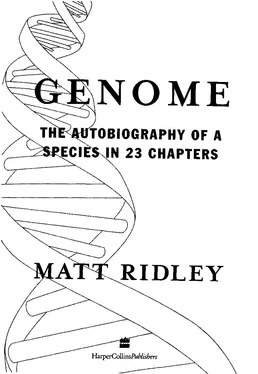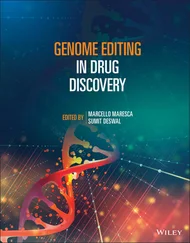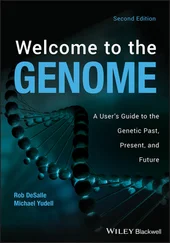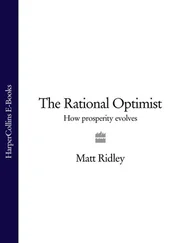Genome - Matt Ridley
Здесь есть возможность читать онлайн «Genome - Matt Ridley» весь текст электронной книги совершенно бесплатно (целиком полную версию без сокращений). В некоторых случаях можно слушать аудио, скачать через торрент в формате fb2 и присутствует краткое содержание. Жанр: Старинная литература, на английском языке. Описание произведения, (предисловие) а так же отзывы посетителей доступны на портале библиотеки ЛибКат.
- Название:Matt Ridley
- Автор:
- Жанр:
- Год:неизвестен
- ISBN:нет данных
- Рейтинг книги:5 / 5. Голосов: 1
-
Избранное:Добавить в избранное
- Отзывы:
-
Ваша оценка:
- 100
- 1
- 2
- 3
- 4
- 5
Matt Ridley: краткое содержание, описание и аннотация
Предлагаем к чтению аннотацию, описание, краткое содержание или предисловие (зависит от того, что написал сам автор книги «Matt Ridley»). Если вы не нашли необходимую информацию о книге — напишите в комментариях, мы постараемся отыскать её.
Matt Ridley — читать онлайн бесплатно полную книгу (весь текст) целиком
Ниже представлен текст книги, разбитый по страницам. Система сохранения места последней прочитанной страницы, позволяет с удобством читать онлайн бесплатно книгу «Matt Ridley», без необходимости каждый раз заново искать на чём Вы остановились. Поставьте закладку, и сможете в любой момент перейти на страницу, на которой закончили чтение.
Интервал:
Закладка:
establishing other forms of biological determinism in its place - the determinism of parental influence or social conditioning. It is odd that so many writers who defend human dignity against the tyranny of our genes seem happy to accept the tyranny of our surroundings.
I was once criticised in print for allegedly saying (which I had not) that all behaviour is genetically determined. The writer went on to give an example of how behaviour was not genetic: it was well known that child abusers were generally abused themselves as children and this was the cause of their later behaviour. It did not seem to occur to him that this was just as deterministic and a far more heartless and prejudicial condemnation of people who had suffered enough than anything I had said. He was arguing that the children of child abusers were likely to become child abusers and there was little they could do about it. It did not occur to him that he was applying a double standard: demanding rigorous proof for genetic explanations of behaviour while easily accepting social ones.
The crude distinction between genes as implacable programmers of a Calvinist predestination and the environment as the home of liberal free will is a fallacy. One of the most powerful environmental sculptors of character and ability is the sum of conditions in the womb, about which you can do nothing. As I argued in the chapter on chromosome 6, some of the genes for intellectual ability are probably genes for appetite rather than aptitude: they set their possessor on a course of willing learning. The same result can be achieved by an inspiring teacher. Nature, in other words, can be much more malleable than nurture.
Aldous Huxley's Brave new world, written at the height of eugenic enthusiasm in the 1920s, presents a terrifying world of uniform, coerced control in which there is no individuality. Each person meekly and willingly accepts his or her place in a caste system -
alphas to epsilons - and obediently does the tasks and enjoys the recreations that society expects of him or her. The very phrase brave new world' has come to mean such a dystopia brought into being by central control and advanced science working hand-in-hand.
3 0 4 G E N O M E
It therefore comes as something of a surprise to read the book and discover that there is virtually nothing about eugenics in it.
Alphas and epsilons are not bred, but are produced by chemical adjustment in artificial wombs followed by Pavlovian conditioning and brainwashing, then sustained in adulthood by opiate-like drugs.
In other words, this dystopia owes nothing to nature and everything to nurture. It is an environmental, not a genetic, hell. Everybody's fate is determined, but by their controlled environment, not their genes. It is indeed biological determinism, but not genetic determinism. Aldous Huxley's genius was to recognise how hellish a world in which nurture prevailed would actually be. Indeed, it is hard to tell whether the extreme genetic determinists who ruled Germany in the 1930s caused more suffering than the extreme environmental determinists who ruled Russia at the same time. All we can be sure of is that both extremes were horrible.
Fortunately we are spectacularly resistant to brainwashing. No matter how hard their parents or their politicians tell them that smoking is bad for them, young people still take it up. Indeed, it is precisely because grown-ups lecture them about it that it seems so appealing. We are genetically endowed with a tendency to be bloody-minded towards authority, especially in our teens, to guard our own innate character against dictators, teachers, abusing step-parents or government advertising campaigns.
Besides, we now know that virtually all the evidence purporting to show how parental influences shape our character is deeply flawed.
There is indeed a correlation between abusing children and having been abused as a child, but it can be entirely accounted for by inherited personality traits. The children of abusers inherit their persecutor's characteristics. Properly controlled for this effect, studies leave no room for nurture determinism at all. The step-children of abusers, for instance, do not become abusers.1
The same, remarkably, is true of virtually every standard social nostrum you have ever heard. Criminals rear criminals. Divorcees rear divorcers. Problem parents rear problem children. Obese parents rear obese children. Having subscribed to all of these F R E E W I L L 3 0 5
assertions during a long career of writing psychology textbooks, Judith Rich Harris suddenly began questioning them a few years ago. What she discovered appalled her. Because virtually no studies had controlled for heritability, there was no proof of causation at all in any study. Not even lip service was being paid to this omission: correlation was being routinely presented as causation. Yet in each case, from behaviour genetics studies, there was new, strong evidence against what Rich Harris calls 'the nurture assumption'. Studies of the divorce rate of twins, for example, reveal that genetics accounts for about half of the variation in divorce rate, non-shared environmental factors for another half and shared home environment for nothing at all.1 In other words, you are no more likely to divorce if reared in a broken home than the average - unless your biological parents divorced. Studies of criminal records of adoptees in Denmark revealed a strong correlation with the criminal record of the biological parent and a very small correlation with the criminal record of the adopting parent — and even that vanished when controlled for peer-group effects, whereby the adopting parents were found to live in more, or less, criminal neighbourhoods according to whether they themselves were criminals.
Indeed, it is now clear that children probably have more non-genetic effect on parents than vice versa. As I argued in the chapter on chromosomes X and Y, it used to be conventional wisdom that distant fathers and over-protective mothers turn sons gay. It is now considered much more likely to be the reverse: perceiving that a son is not fully interested in masculine concerns, the father retreats; the mother compensates by being overprotective. Likewise, it is true that autistic children often have cold mothers; but this is an effect, not a cause: the mother, exhausted and dispirited by years of unre-warding attempts to break through to an autistic child, eventually gives up trying.
Rich Harris has systematically demolished the dogma that has lain, unchallenged, beneath twentieth-century social science: the assumption that parents shape the personality and culture of their children.
In Sigmund Freud's psychology, John Watson's behaviourism and 3 0 6 G E N O M E
Margaret Mead's anthropology, nurture-determinism by parents was never tested, only assumed. Yet the evidence, from twin studies, from the children of immigrants and from adoption studies, is now staring us in the face: people get their personalities from their genes and from their peers, not from their parents.1
In the 1970s, after the publication of E . O . Wilson's book Sociobiology, there was a vigorous counter-attack against the idea of genetic influences on behaviour led by Wilson's Harvard colleagues, Richard Lewontin and Stephen Jay Gould. Their favourite slogan, used as a tide for one of Lewontin's books, was uncompromisingly dogmatic:
'Not in our genes!' It was at the time still just a plausible hypothesis to assert that genetic influences on behaviour were slight or non-existent. After twenty-five years of studies in behavioural genetics, that view is no longer tenable. Genes do influence behaviour.
Yet even after these discoveries, environment is still massively important - probably in total more important than genes in nearly all behaviours. But a remarkably small part in environmental influence is played by parental influence. This is not to deny that parents matter, or that children could do without them. Indeed, as Rich Harris observes, it is absurd to argue otherwise. Parents shape the home environment and a happy home environment is a good thing in its own right. You do not have to believe that happiness determines personality to agree that it is a good thing to have. But children do not seem to let the home environment influence their personality outside the home, nor to let it influence their personality in later life as an adult. Rich Harris makes the vital observation that we all keep the public and private zones of our lives separate and we do not necessarily take the lessons or the personality from one to the other. We easily 'code-switch' between them. Thus we acquire the language (in the case of immigrants) or accent of our peers, not our parents, for use in the rest of our lives. Culture is transmitted autonomously from each children's peer group to the next and not from parent to child - which is why, for example, the move towards greater adult sexual equality has had zero effect on willing sexual segregation in the playground. As every parent knows, children preF R E E W I L L 3 0 7
Читать дальшеИнтервал:
Закладка:
Похожие книги на «Matt Ridley»
Представляем Вашему вниманию похожие книги на «Matt Ridley» списком для выбора. Мы отобрали схожую по названию и смыслу литературу в надежде предоставить читателям больше вариантов отыскать новые, интересные, ещё непрочитанные произведения.
Обсуждение, отзывы о книге «Matt Ridley» и просто собственные мнения читателей. Оставьте ваши комментарии, напишите, что Вы думаете о произведении, его смысле или главных героях. Укажите что конкретно понравилось, а что нет, и почему Вы так считаете.












